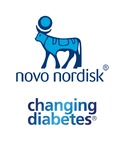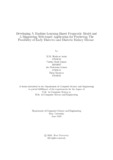Ethnic predisposition of diabetes mellitus in the patients with previous history of gestational diabetes mellitus: A review
Date
2018-05-08Publisher
Tayor & Francis OnlineAuthor
Gupta, Rajat DasGupta, Sabyasachi
Das, Anupom
Biswas, Tuhin
Haider, Mohammad Rifat
Sarker, Malabika
Metadata
Show full item recordCitation
Das Gupta, R., Gupta, S., Das, A., Biswas, T., Haider, M. R., & Sarker, M. (2018). Ethnic predisposition of diabetes mellitus in the patients with previous history of gestational diabetes mellitus: A review. Expert Review of Endocrinology and Metabolism, 13(3), 149-158. doi:10.1080/17446651.2018.1471354Abstract
Introduction: The worldwide prevalence of Gestational Diabetes Mellitus (GDM) is increasing day by day. However, there is a knowledge gap regarding the effect of ethnic and geographical distribution on the risk of developing Diabetes Mellitus (DM) in women with history of GDM. This review was conducted to find out the role of ethnic and geographical distribution on the risk of developing DM is women with GDM.
Areas covered: In this review we conducted a comprehensive search of published studies through different electronic databases (PubMed, Google Scholar, CINAHL, CINAHL plus and EMBASE) published between 1990 and 2017. The studies which were published in English investigated the risk of development of DM in women with previous history of GDM, reported outcome according to ethnicity with specific criteria of reporting DM and GDM, reported development of diabetes after 6 month of delivery in women with GDM during pregnancy were included. Initially, 350 articles were identified, among which 16 articles were included in the final review.
Expert commentary: Studies showed the increased risk of developing subsequent DM is associated with precedent GDM. Around 7-84% women developed diabetes after GDM in five years follow up, where some studies reported the risk continues to increase with increasing age. Risk of DM was found higher for some specific ethnicities, irrespective of the location of the study conducted. East Indian women showed the highest risk of postpartum DM after GDM and the crude prevalence remained almost similar in all form of study worldwide. Public health programme should focus more on women belonging to high-risk ethnicity of GDM for the prevention of postpartum DM.
Keywords
Diabetes mellitus; Pregnancy in diabetics; Gestational diabetes mellitus; Continental population groups; Genetic predisposition to diseaseDescription
This article was published in the Expert Review of Endocrinology & Metabolism [© Published by Taylor and Francis ] and the definite version is available at : https://doi.org/10.1080/17446651.2018.1471354 The Journal's website is at: https://www.tandfonline.com/doi/full/10.1080/17446651.2018.1471354?needAccess=trueDepartment
Brac James P. Grant School of Public HealthType
Journal ArticleCollections
Related items
Showing items related by title, author, creator and subject.
-
Novo Nordisk Ltd. (pharmaceutical industry)
Matin, Md. Zubair (BRAC University, 2016-08-20)Bangladesh is a densely populated country situated at South- East Asia. Although the geographical area of the country is not that big, but the country is huge (8th in the world) in terms of the population (close to 160 ... -
Developing a machine learning based prognostic model and a supporting web-based application for predicting the possibility of early diabetes and diabetic kidney disease
Amin, M.M. Shahriar; Gomes, Partho Mark; Gomes, Jui Philomina; Tasneem, Faiza (Brac University, 2021-06)Machine Learning has gotten attention in the healthcare industry for the competences to ameliorate disease prediction. Machine learning has already been used in the health sector. Diabetes can also trigger the permanent ... -
A review on metformin for the treatment of type II Diabetes Mellitus
Yasin, Muhammad Tasnim (Brac University, 2024-03)Metformin, a well-known medication for type 2 diabetes, has demonstrated promise in postponing or averting the disease's beginning in high-risk patients. The first line of treatment for type 2 diabetic mellitus is biguanides ...



